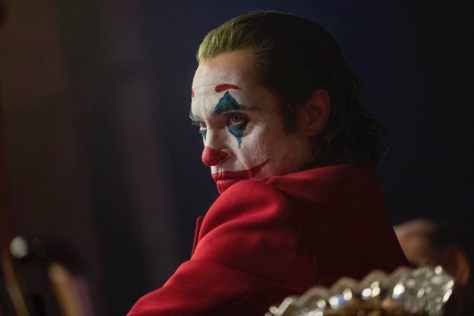
The harrowing new World War I film 1917 opens on two British soldiers, played by George MacKay and Dean-Charles Chapman, getting some much needed rest. Little do they know, it’s the only bit of respite that they’ll get for the next two hours. After they’re awoken and given a mission by their General, played by Colin Firth, the pair is thrust into no man’s land to deliver a message with orders to call off an ally’s pending attack. Along the way, familiar faces from Benedict Cumberbatch to Mark Strong pop up to help our protagonists in their treacherous journey. What makes the experience different than almost any other war movie, however, is that we follow the action in real time as the film is presented to appear as one continuous shot.
This impressive technical feat, a collaboration between director Sam Mendes and cinematographer Roger Deakins, has been attempted several times in other non-war films. Hitchcock’s Rope was the first to approach the gimmick back in 1948 and recent films from Birdman to Son of Saul have used disguised cuts to appear as a single take. Even more rare are the films that are truly one unbroken shot, like the mind-boggling 140-minute heist film Victoria. Though Mendes does implement a few cuts from the action — particularly the most notable one separating day from night at the film’s midpoint — the effect is as arresting and sensational as the director intended. The level of coordination and timing on display within these lengthy long takes is simply unheard of, particularly for this genre.
Mendes wisely re-teamed with his Skyfall cameraman Deakins to carry out such an expansive experiment. Deakins, who won a long overdue Oscar a couple years ago for his work in Blade Runner 2049, is in line for another nomination and hopefully a win for his nimble and virtuosic cinematography. Whether his camera is skimming across shallow water to follow our heroes or pedaling back as a wounded German plane comes careening to the ground, the action is framed flawlessly in every sequence. Even more minor shots, like the claustrophobic one in the back of a crowded truck where a camera crew couldn’t possibly fit, highlight a level of preparation and commitment that is inspiring, to say the least.
If there’s disappointment in 1917, it’s that the story and character work simply doesn’t match the ambition and ingenuity of the technical aspects at play. We follow the primary soldiers as they doggedly trek through a series of perilous circumstances but we learn very little about them in the process. Nearly every other character is only on-screen for a few moments total and, perhaps by necessity, their roles are underdeveloped and unmemorable. Despite its technical excellence, the film dips into self-indulgence in certain stretches and at times, the film doesn’t seem to exist for any other reason than to show us how difficult it was to make.
Nevertheless, the behind-the-camera aspects, including a rousing and riveting music score from Thomas Newman, will deservedly draw attention in the upcoming award season. One area that will likely be ignored is the work by the two lead actors, particularly by MacKay. Acting is easier when one can rely on multiple takes upon which to cobble together the most optimal performance but the pressure on the performer is much higher when they have to be “on” for 45 consecutive minutes at a time. 1917 isn’t quite the all-time great that it wants to be but it’s a visceral and thrilling exploration of warfare from an audacious new perspective.
Score – 3.5/5
Also coming to theaters this weekend:
Just Mercy, starring Michael B. Jordan and Jamie Foxx, tells the true story of a civil rights defense attorney who takes the case of a wrongly condemned death row prisoner in 1980s Alabama.
Like a Boss, starring Tiffany Haddish and Rose Byrne, is a comedy set in the cosmetics world about two entrepreneurs who start a beauty company but are hindered by a greedy benefactor.
Underwater, starring Kristen Stewart and Vincent Cassel, is a spin on the Alien formula about a crew of underwater researchers who are left stranded when an earthquake wrecks their subterranean laboratory.
Reprinted by permission of Whatzup








